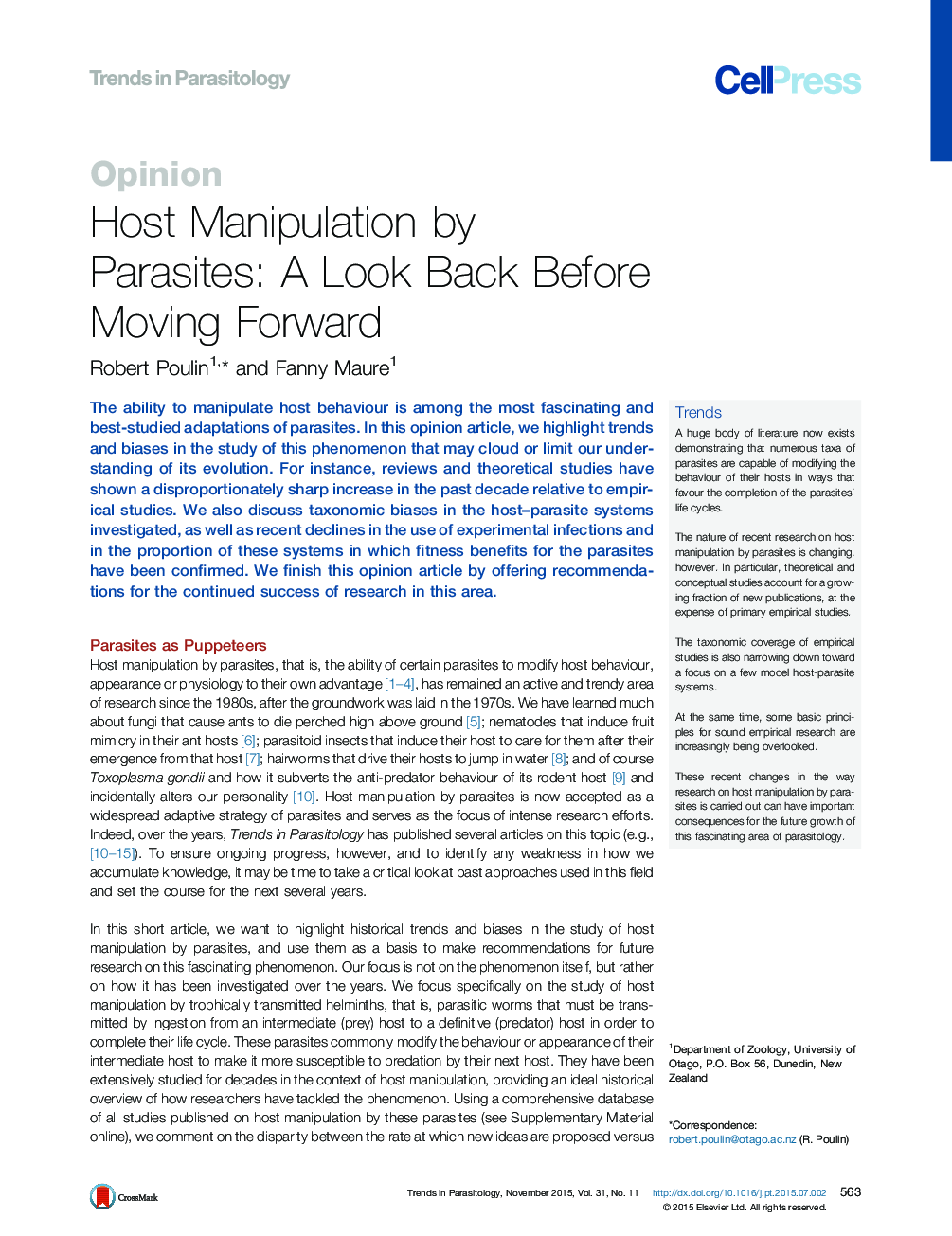| Article ID | Journal | Published Year | Pages | File Type |
|---|---|---|---|---|
| 3422892 | Trends in Parasitology | 2015 | 8 Pages |
The ability to manipulate host behaviour is among the most fascinating and best-studied adaptations of parasites. In this opinion article, we highlight trends and biases in the study of this phenomenon that may cloud or limit our understanding of its evolution. For instance, reviews and theoretical studies have shown a disproportionately sharp increase in the past decade relative to empirical studies. We also discuss taxonomic biases in the host–parasite systems investigated, as well as recent declines in the use of experimental infections and in the proportion of these systems in which fitness benefits for the parasites have been confirmed. We finish this opinion article by offering recommendations for the continued success of research in this area.
TrendsA huge body of literature now exists demonstrating that numerous taxa of parasites are capable of modifying the behaviour of their hosts in ways that favour the completion of the parasites’ life cycles.The nature of recent research on host manipulation by parasites is changing, however. In particular, theoretical and conceptual studies account for a growing fraction of new publications, at the expense of primary empirical studies.The taxonomic coverage of empirical studies is also narrowing down toward a focus on a few model host-parasite systems.At the same time, some basic principles for sound empirical research are increasingly being overlooked.These recent changes in the way research on host manipulation by parasites is carried out can have important consequences for the future growth of this fascinating area of parasitology.
